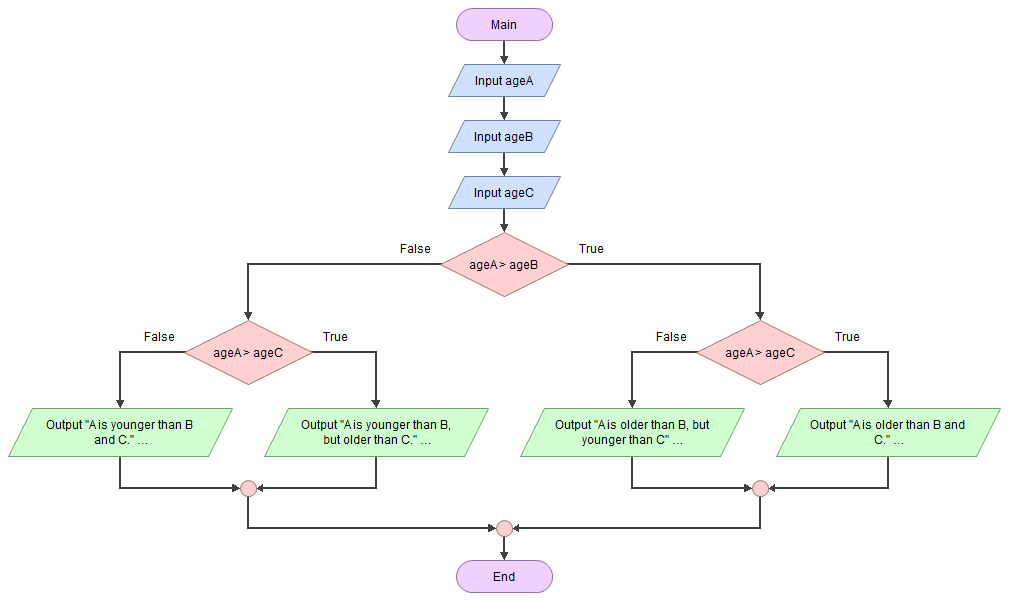Nested if-else statement
A nested if-else statement means an if-else statement containing another if-else statement. Using nested if-else statements we can control the flow of the program based on multiple levels of conditions.
Syntax
if (<condition 1>) {
if (<condition 2>) {
// Code to be executed if condition 1 and 2 both are true
} else {
// Code to be executed if condition 1 is true but 2 is false
}
} else {
if (<condition 1>) {
// Code to be executed if condition 1 and 2 both are true
if (<condition 2>) {
// Code to be executed if condition 1 is true but 2 is false
}
}Example
In this program, we are comparing person A’s age with Person B, C.
import java.util.Scanner;
public class NestedIfElseExample {
public static void main(String[] args) {
Scanner scanner = new Scanner(System.in);
System.out.println("Enter age for person A : ");
int ageA = scanner.nextInt();
System.out.println("Enter age for person B : ");
int ageB = scanner.nextInt();
System.out.println("Enter age for person C : ");
int ageC = scanner.nextInt();
if (ageA > ageB) {
if (ageA > ageC) {
System.out.println("A is older than B and C.");
} else {
System.out.println("A is older than B, but younger than C");
}
} else {
if (ageA > ageC) {
System.out.println("A is younger than B, but older than C.");
} else {
System.out.println("A is younger than B and C.");
}
}
}
}Flow diagram
